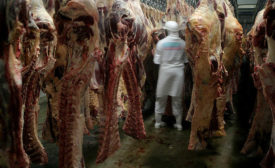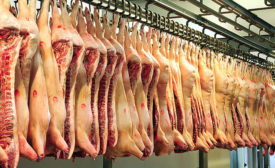Legislative
Regulations & Legislation
Targeting Campylobacter
FSIS proposes new Campylobacter performance standards for NRTE comminuted poultry
Read More
Regulations & Legislation
FSIS issues guidance for responding to customer complaints
May 3, 2019
FSMA and transportation compliance
Food safety remains at the heart of FSMA with documentation being required for compliance.
Read More
Get our new eMagazine delivered to your inbox every month.
Stay in the know with The National Provisioner's comprehensive coverage of the meat and poultry processing industry.
SUBSCRIBE TODAY!Copyright ©2024. All Rights Reserved BNP Media.
Design, CMS, Hosting & Web Development :: ePublishing











